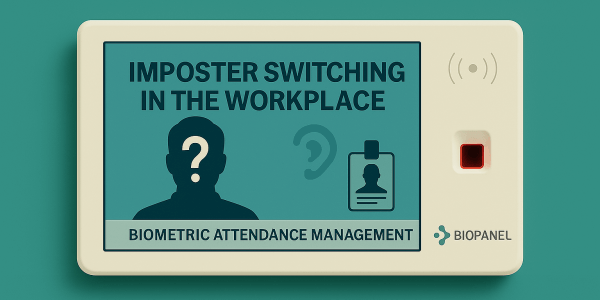According to new studies, only 6% of us actually have traditional 9-5 working patterns. Flexible working is giving a person the flexibility as to where, when and how long they work. But what are the benefits?
According to new studies, only 6% of us actually have traditional 9-5 working patterns. Flexible working is giving a person the flexibility as to where, when and how long they work. It has been proven there are lots of benefits to flexible working and the majority of business now adopt a flexible work policy. Well-known companies are now offering flexible working for employees in order to provide them with a good work-life balance. For example, BAE systems provides Flexible working and a solid bonus structure. It’s well-known for its positive work-life balance for employees.
This change in working hours for employees is often due to new rights in place that demand us to do so and partly because of globalisation. People work all over the world and work with businesses/clients often in different time zones, so trying to be online when they are doesn’t often require unnecessary 9-5 working days. Within society, there is a new appreciation that businesses working smarter, not harder, is more productive than people being present for no reason. Have you ever sat there, hanging around that specific time slot of 9-5 in the office, even though there is nothing left to do? Tedious, right? With a growing demand for companies to offer a ‘work-life balance friendly environment’, industries have implemented zero-hour contracts, freelance work and now non-traditional working patterns are much more common. Also, for anyone searching for a new job role, the job advertisements stating ‘flexible time available’ are much more attractive to the job seeker.
Flexible working doesn’t just have benefits for the employee, it also creates benefits for the employer, with many advantages for the business as a whole.

Advantages for the Employee;
-Flexibility to meet family needs
For any working Mother’s or Father’s flexible working is always beneficial. This allows for personal obligations, such as picking the kids up from school or being able to have time to yourself, for example, taking part in sporting activities to maintain a healthy balanced lifestyle. Research shows that 1 in 5 (21%) of 25-34 year olds are unhappiest with their work-life balance. Flexible working enables employees to have a good work-life balance, which improves their health and wellbeing which in turn can contribute to an increase in productivity.
– Reduced consumption of employee commuting time, fuel costs and stress of busy travel times-
Giving employees the option to work from home, leave work before 5 or starting later to give them time to get to work stress free, all helps increase employee happiness. Depending on where you work and what you do, it isn’t always necessary for you to be in the office, this can save the company (on expenses) and the employee, wasted money spent on fuel or travel.
-Reduce employee burnout due to overload-
Sometimes an overload of work and sitting in the office can burnout employees and they don’t get enough down time. This leads to a drop in productivity as employees are worn out. Therefore, allowing employees to have the option of flexible work, they can switch off from work and concentrate on home life separately.
-Employees start to enjoy work-
As employees start to concentrate on creating a sufficient work-life balance they psychologically begin to separate work from home/personal life. This can help decrease the amount of absent days, increase productivity and employee engagement.
Also, introducing flexible working patterns, depending on the hours worked, could reduce child care costs for parents. If one parent worked from 9.30-3 and the other worked 3.30/4-7 then the childcare cost is reduced. This links to the employers benefitting, as their options for recruiting the right talent regardless to work pattern requirement becomes much wider, potentially making the business a more popular and enticing place to work.
Advantages for the Employer;
-Increased employee morale and engagement- Productivity is massively increased as there is a good work-life balance for employees. This can reflect on the smooth running of the organisation and creating a healthier/happier relationship with co-workers and clients. If employees are more engaged and enthusiastic about work, the business will benefit from better retention rates, lower absenteeism, and strong loyalty from employees.
-Increased ability to recruit outstanding employees- Offering Flexible Work is enticing for any job seeker and can potentially be ‘make or break’ for someone contemplating taking a job. Over the past couple of years, it has become more common for people to care about things such as the working environment, the office, the perks and the work pattern before prioritising the actual job role. People want to know they can enjoy themselves in a place they spend the majority of their time and having a positive work-life balance is equally as important.
-Good quality work- As productivity is subsequently increased when people have flexible working patterns, this often leads to better results due to employees not being over worked or burnt out. By having a balance of working life and personal life, employees are more prepared to work harder and smarter with time for innovation.
Previous article Next article
In the fast-moving world of tech, "legacy software" often gets an unfair reputation. It’s a phrase that tends to trigger assumptions of outdated, clunky, slow, or obsolete. But the truth is, legacy systems in general are anything but old. They are refined, battle-tested, and in many cases, light years ahead of newer platforms when it comes to real-world performance, reliability, and depth of functionality.
Read news article
The Hidden Risk & How Biometrics Can Protect Your Business
In today’s fast-paced and regulation-heavy business environment, employers across the UK face increasing pressure to ensure compliance with right-to-work legislation. Yet, a growing and often overlooked threat is putting businesses at serious legal and reputational risk…… imposter switching.
Read news article
In the world of business, the old adage "time is money" holds more truth than ever especially as employment costs have just increased. Every minute wasted or mismanaged equates to financial loss, and one of the most significant yet often overlooked areas where businesses lose money is through poor employee attendance management. If left unchecked, absenteeism, tardiness, and time theft can lead to financial instability, reduced productivity, and even long-term reputational damage.
Read news article